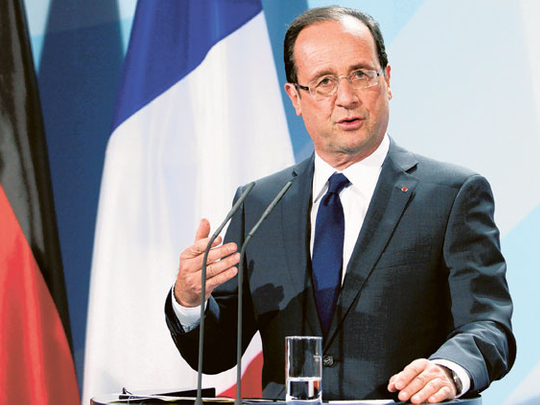
The European Union is the most successful model of economic blocs in the world. It has become a role model to be emulated by other global economic blocs which try to follow in its footsteps to achieve the common goals of security and economic progress.
Therefore, the problems experienced by the EU during the global financial crisis and the euro crisis have created doubts about the EU's ability, and its single currency, to continue. Nevertheless, European leaders have proved once again their belief in the famous saying: "What does not kill you strengthens you."
However, European countries conducted a careful and comprehensive review to find out the reasons behind their consecutive financial problems and crises. They found that one of the main reasons is lack of commitment to agreements and obligations concluded between EU member states, most notably financial rules related to deficit rate in the annual budgets which stood at three per cent and the ratio of their public debt to GDP, which is valued at 60 per cent.
This has prompted the EU to set the so-called golden rules, which serve as a new financial treaty aimed at promoting financial discipline, and to be included in the constitution of each state or be issued in a law. The EU also is considering the imposition of sanctions on any member state found in violation of the golden rules that were not included in the previous treaty.
Balanced budgets
Britain did not sign the new treaty in fear of a decline in the distinguished financial position of its capital, London. But, since Britain is already outside the Eurozone in all cases, its stand will not downplay these rules to maintain a minimum level of financial commitments to save the Eurozone and not to repeat the previous mistakes.
Among many other things, signatory countries of the new treaty have pledged to develop balanced budgets even if they have to reduce expenditure or be committed to austere economic policies. Many European countries have adopted austere policies but were faced by severe resistance by trade unions and civil society organisations.
Yet, more dangerous is the emergence of strong opposition to austerity policies, especially after Francois Hollande came to power in France, which is considered one of the architects of the "Golden Ruler Treaty", as well as Germany.
Apart from France, Greece's position seems tougher and more complicated with opponents of the Treaty assuming power in their countries, where financial crisis has intensified despite the approval of pumping ¤250 billion (Dh1.16 billion) into the Greek economy.
The call for an exit from the Eurozone has grown recently amid calls for a return to the drachma which has not been cancelled from bank systems despite ten years since the introduction of the single European currency.
The EU is facing a tough test because they pin much hope on the golden rules to get out of the euro crisis at a time when Europe is passing through economic crises as well as the world economy as a whole. This happens while options are limited. The president of Germany's Central Bank, who also represents Europe's largest economy, has warned the French president-elect of the persistent rejection of the golden rules.
Francois Hollande cannot completely abandon his campaign promises, otherwise he will lose credibility before he begins his first term in office, which would put the EU in a real impasse in the coming period. However, there are practical solutions to find a way out, but this requires something like surgery to remove obstacles facing the Union. If these problems are resolved successfully, the EU will become stronger and more coherent.
The first thing to do is to find a consensus between German Chancellor Angela Merkel and Hollande through compromise. The two countries are fully aware they cannot turn the clock back, especially after all of Europe had been unified under their leadership and occupied its new and important position in international relations.
Dr Mohammad Al Asoomi is a UAE economic expert and specialist in economic and social development in the UAE and the GCC countries.












